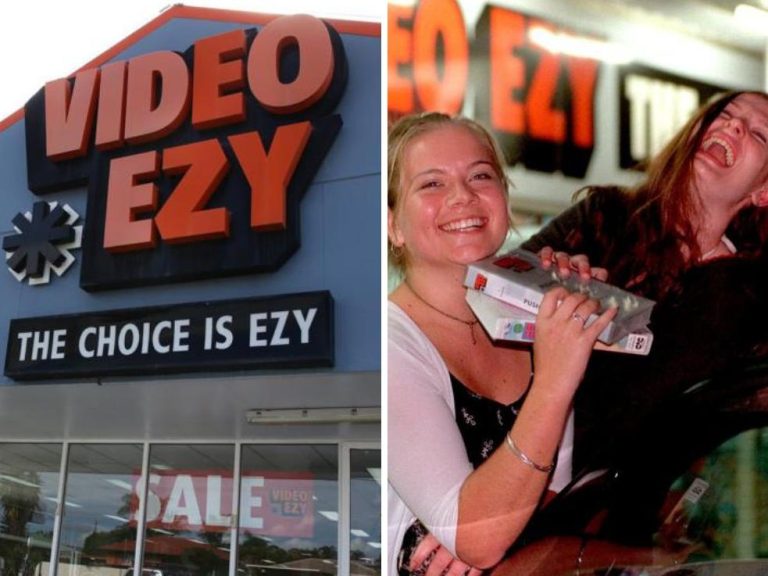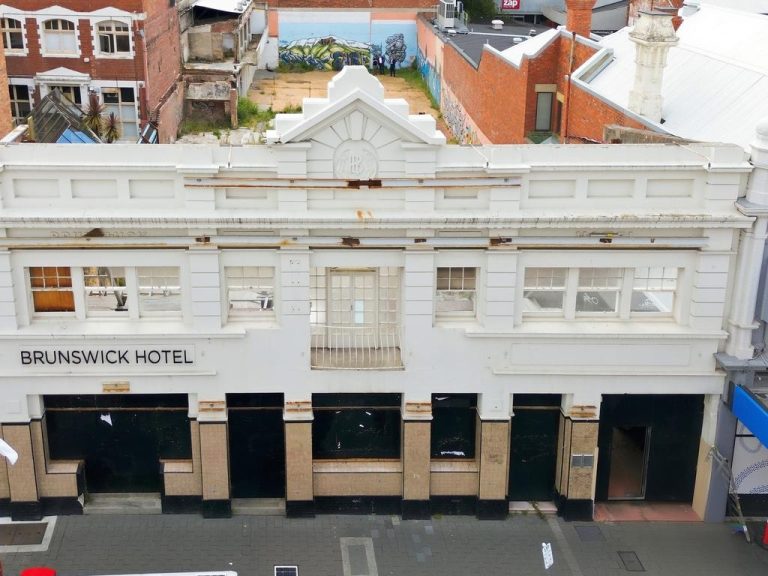Hanging on: Can small cinemas survive in a post-pandemic world?
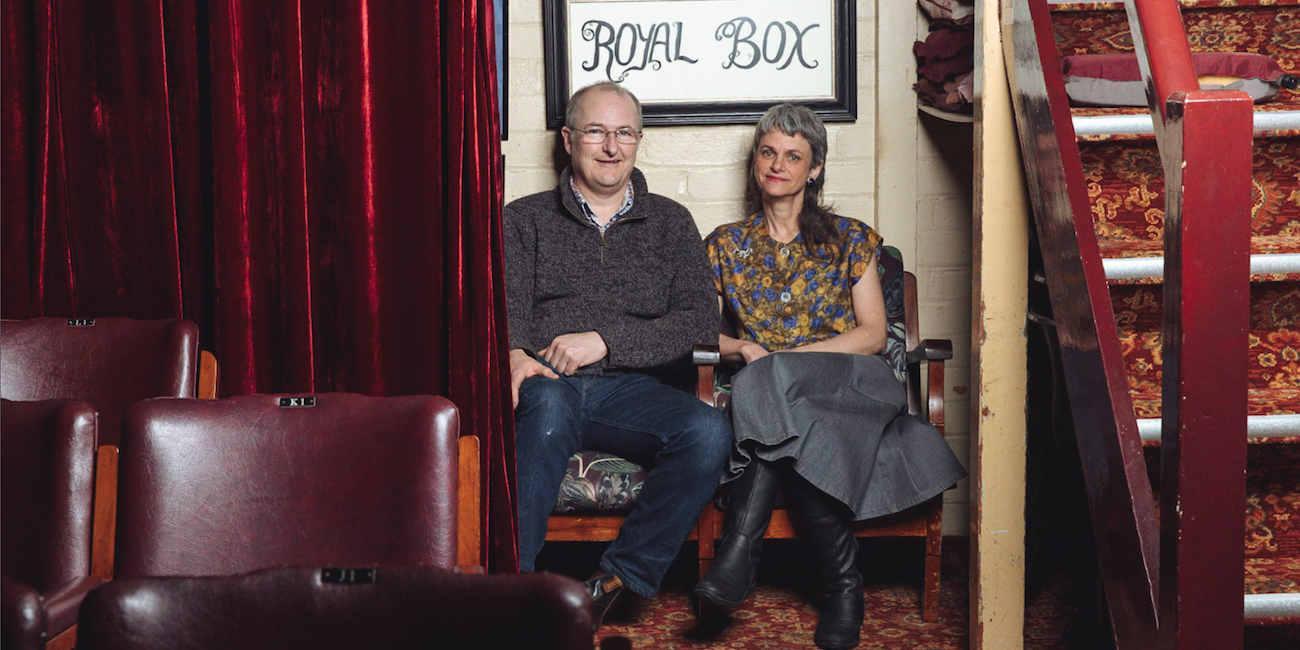
In her youth, Kirsten Mulholland was charmed by the historic Mount Vic Flix picture theatre. But the romantic idea that she might one day run the iconic cinema in the World Heritage-listed Blue Mountains town was like something from a Hollywood script.
“It’s beautiful, that’s why I fell in love with the place,” the former teacher told realcommercial.com.au.
“It’s so cute and old-school. I always loved the idea of perhaps running it, never thinking it might actually come true.”
The iconic single-screen cinema began as Mount Victoria Pictures, operating from the 1930s town hall until the late 1950s.
It was closed until 1986, when Ron and Diane Bayley established Mount Vic Flicks.
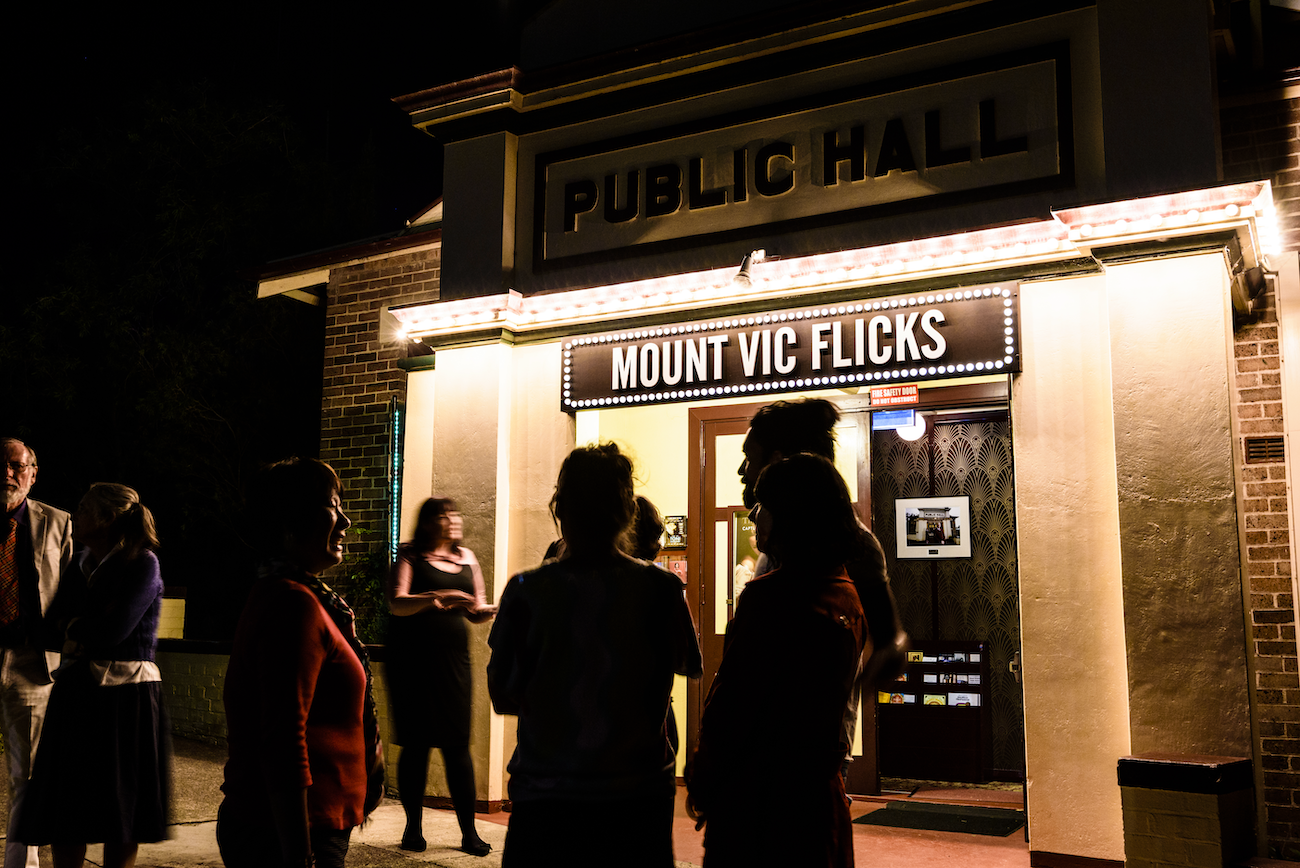
Mount Vic Flicks is a single-screen cinema in the NSW Blue Mountains. Picture: Supplied
When the Bayleys retired a decade ago, just as films were converted to digital, Ms Mulholland and her partner Adam Cousins jumped on board.
“They were having a hard time finding people that wanted to continue running it as a cinema,” she explained.
“Unsurprisingly, really, because I think things were looking a little hard even then.”
It’s been a difficult time for cinema businesses, which have endured dwindling audiences since Covid, fierce competition with streaming services and recently, the Hollywood strikes.
Last month, regional group Majestic Cinemas entered voluntary administration, blaming Covid, falling ticket sales, cost of living pressures, higher operating costs and changing consumer preferences.
Two of its nine theatres have since closed, while administrators are working hard to keep the remaining NSW and Queensland cinemas trading.
Ms Mulholland admits Covid has been tough, along with the narrowing of theatrical windows – that time where films are viewed at cinemas only.
“It used to be months before they’d go on DVD, so all cinemas, particularly small ones, had an opportunity to get a good audience,” she said.
But that window has increasingly narrowed, even more so since Covid and the availability of streaming.
“It’s a small enough window for people to just wait, especially if they’re nervous about being in crowds again or watching their money. They’ll just sit and wait and watch it at home,” she said.
Her partner Adam said trade has slowly improved since the pandemic but “we’re still about where we were seven years ago”.
“People are still just getting back into the idea of coming out,” he said.
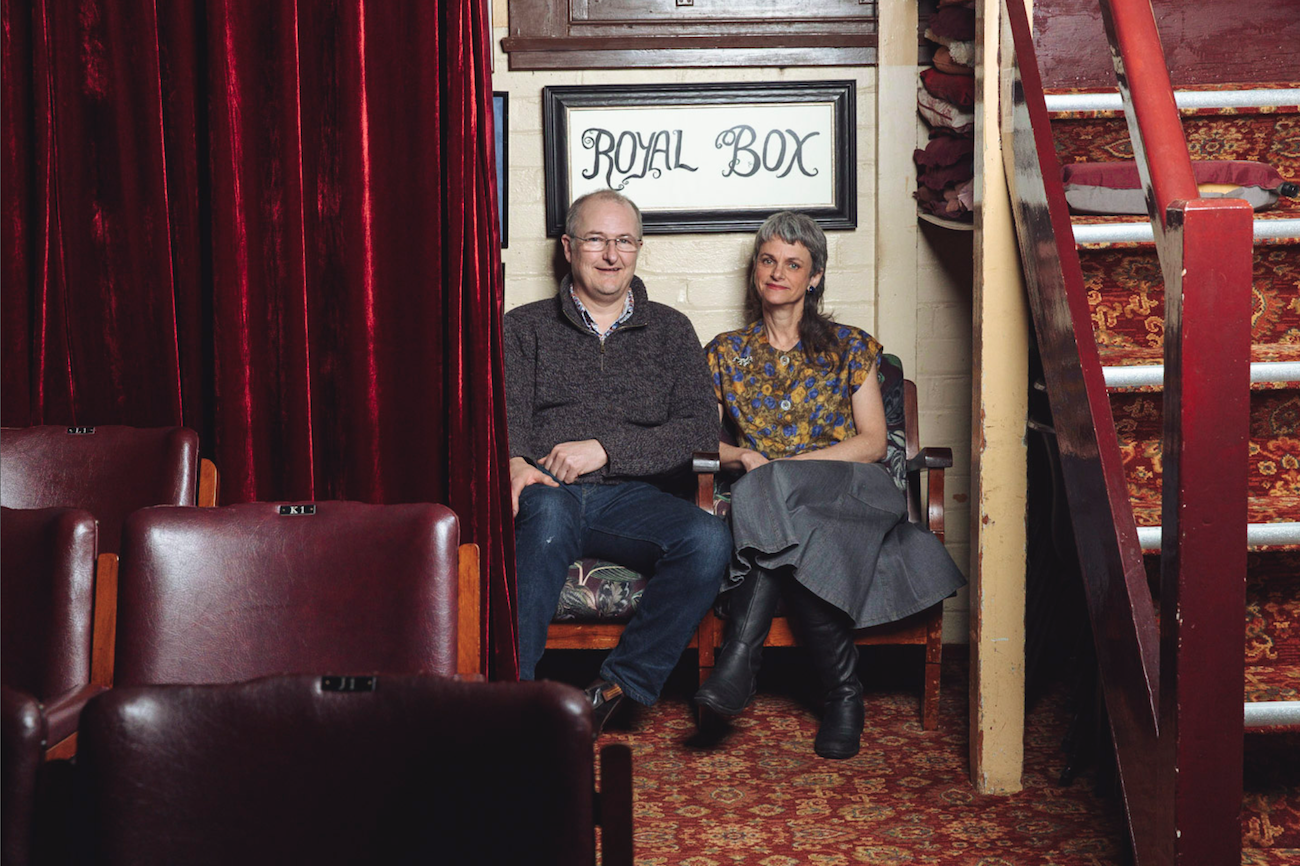
Kirsten Mulholland and Adam Cousins have run Mount Vic Flicks for the past decade. Picture: Maya Baska
The couple manages everything at the 132-seat cinema, right down to making the choc tops.
Working long days and doing it all themselves without hiring staff has helped keep the doors open.
“I can’t think of many people who’d be happy to do that, and not for a great amount of money either if you break down the hours,” Ms Mulholland said.
It’s a contrast to the handful of other single-screen cinemas that rely on volunteers or only function part time, she added.
Consumers tighten the belt
PropTrack economist Anne Flaherty said the cost of living crisis has “very significantly” reduced per person retail spending, making it a challenging time for many retailers like cinemas.
“The average household savings rate has fallen to the lowest level seen since December 2007, which was when the global financial crisis was kicking off,” she said.
“So, households are doing it very tough at the moment, and they have less discretionary income they could spend on things like going to the cinema.”

The cost of living crunch is causing households to cut back on discretionary spending and save less. Picture: Getty
The current climate could be a risk factor for investors looking to enter the cinema business, but it may also offer opportunities to pick up a discount, Ms Flaherty said.
The investment location is also worth noting. Regional population growth is forecast to continue, which is a positive sign for the longer term prospects of a cinema asset, she added.
Adapting to changing demands
To cope with the recent challenges, Australia’s largest cinemas have been expanding or opening new cinemas, according to a 2023 IbisWorld report on Cinemas in Australia.
They’ve invested in premium experiences like comfier seats, better screens, and luxury food and drink menus, which tend to attract a higher spend per customer.
In its half-yearly results this week, cinema heavyweight EVT – which owns Event Cinemas – said its “premiumisation strategy” was driving continued growth in the spend per head.
Andrew Moore is the co-owner of Lilac City Cinema in Goulburn NSW, which has been listed for sale at $4.95 million.
He bought the cinema off the local council in 2000 with his two brothers and father, investing around $4 million for the purchase and upgrade.
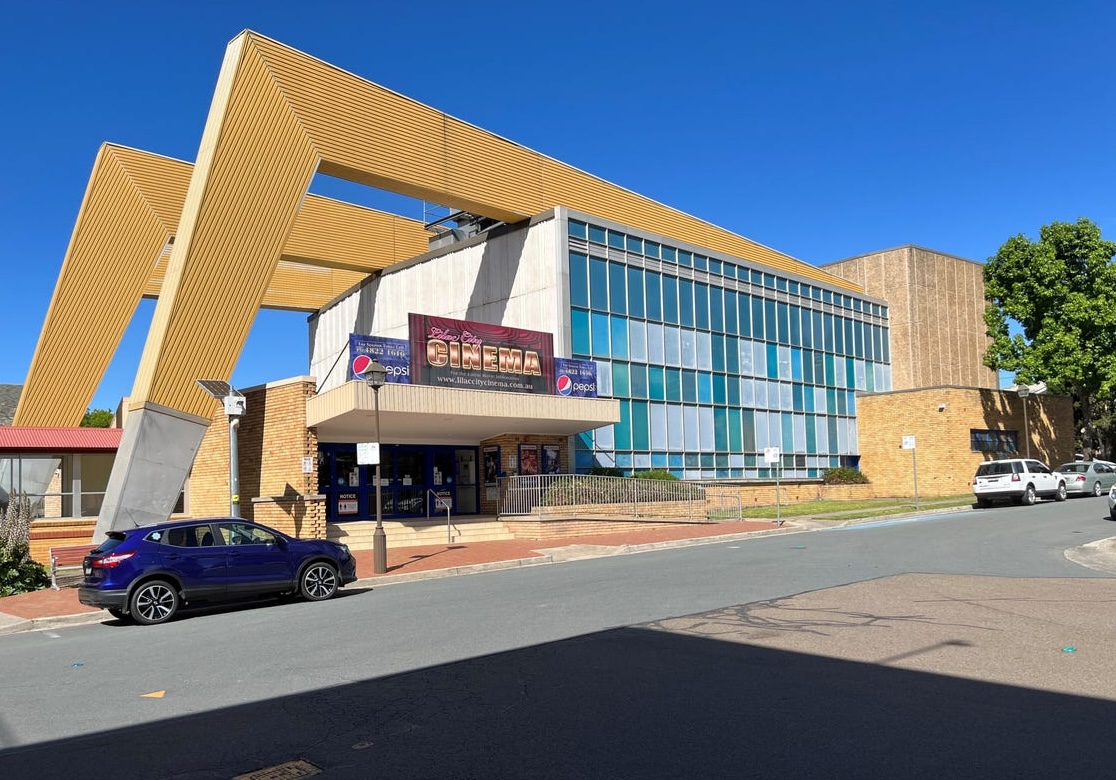
Goulburn’s Lilac City Cinema in regional NSW is on the market after surviving the pandemic. Picture: realcommercial.com.au
But now at retirement age, he has other plans.
“Had our children wanted to continue on with it, we would have been going in a totally different direction. But we’re at the point now where we wish to travel and do other things with our lives, and the cinema’s going to be in the road of that.”
When the pandemic struck, Mr Moore said the business was on target for its best year ever.
It’s been a struggle since, but the business has returned to profit through careful management of expenses.
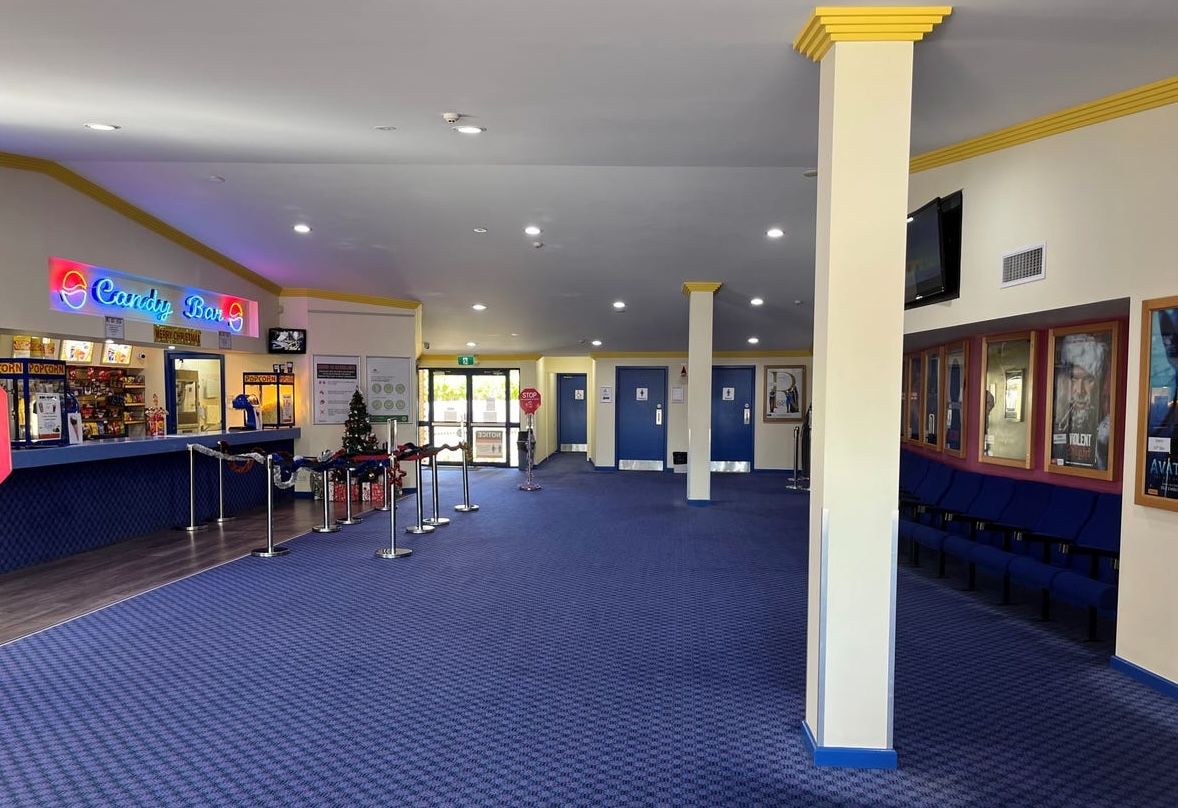
The cinema had been on target for its best year ever before the pandemic struck in 2020. Picture: realcommercial.com.au
Having endured the industry’s ups and downs, he believes there is still room in Australia for the small cinema.
“It’s a sort of industry that you’ve got to have an absolute love and passion for. You’d never get to make a million dollars out of it. But you will make a comfortable living out provided you’re prepared to put the effort in,” he pointed out.
“Or … have the capacity behind you to have a few sites, and if one’s not performing the others will help it along.”
While not a hard industry to learn, he said it requires a hands-on approach. He believes the business would suit a family with teenage children and a passion for cinema.
Over at Mount Vic Flix, Kirsten and Adam are continuing to run the show with no plans to close the curtain on the old world theatre anytime soon.
Despite the cinematic battles, they are “doing alright” and still enjoy what they do.
“We love it. We have no intention of moving on at all,” she said.
“There are not many places like it, that’s for sure. It’s one of those little treasures.”

